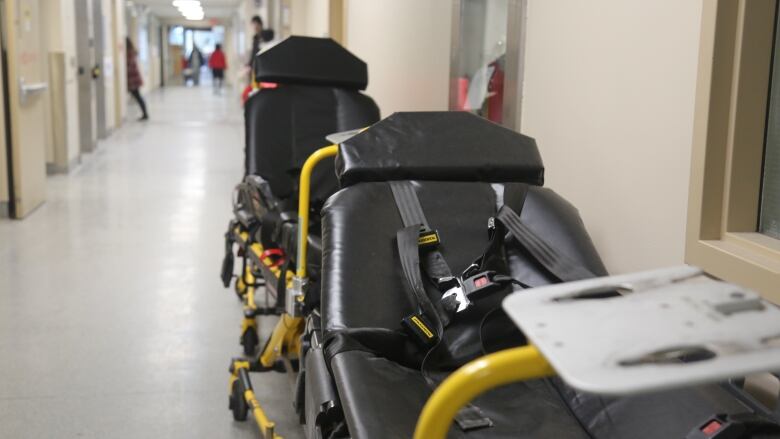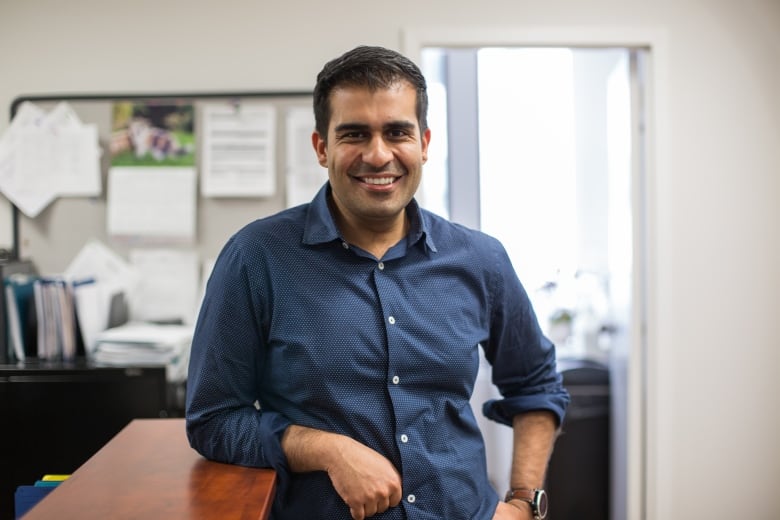Hamilton COVID-19 models need weeks of refinement but the surge is on its way
There's no word on how many Hamiltonians may become COVID-19 victims but officials expect a surge soon

The city of Hamilton is doing its own modelling of how COVID-19 will continue to spread among locals, but Dr. Zain Chagla, infectious disease physician at St. Joseph's Healthcare Hamilton, told CBC News it will take weeks before long-term projectionsbecomemore accurate and asurge of coronavirus cases is expected to start hitting Hamilton and the rest of Ontario in the coming days.
"We're right at the beginning of the model because we don't have much input [data] going in, so it's one that we'll get probably better projections over the next couple of weeks," he said.
"There's not actually a lot of patients hospitalized in Hamilton we need more weeks of experience to make sure it fits properly."
Chagla said the city, St. Joe's and Hamilton Health Sciences have already compiled data for weeks, most of which has come from models made by others.
He would not specify how many people the novel coronavirus will infect or kill in Hamilton based on their predictions because the figures are confidential and may not be reliable.
As of Sunday at noon, COVID-19 has infected 155 people and killed three in Hamilton.
And Chagla said the number of caseswill peak throughout the coming weeks.
That follows data Ontario released Friday afternoon, which showed as many as 15,000 people could die during the pandemic, 1,600 of whom could be dead by the end of April.
"If we take our local numbers and we apply them forward, it makes sense," he said.
"When I first looked at the models and the numbers, you do a back-of-the-envelope calculation to estimate a few things rounding off a few numbers, it wasn't far off what they came up with in terms of the best case scenario."
'We're scaling up to the worst case scenario'
With a lack of data, it's unclear just how much damage the virus could deal.
"We're scaling up to the worst case scenario but it's also, if we can get a sense, week by week, what the differences are going to be and how much we need to scale up week by week rather than just have everything scaled up all at once, it's a whole lot more tolerable to do," Chagla said.
"Realistically, we have no vaccine, we are only starting clinical trials on some drugs, all we have in physical distancing and hygiene is a biological control, so it's important the community knows really how much this distancing, closures, all that really means to the future of this disease."
The local models are more focused on staffing and supply demands on a weekly basis.
The main objective is creating more space and resources to treat COVID-19 victims.
Provincial models show by April 14 just eight days Ontario may run out of beds in intensive care units.
"Our goal is to have the most beds available. The modelling we've done is just to get to know exactly what we're expecting in agiven week but at the end of the day we're trying to get the most beds, the most ventilators, the most staffing and that's really been the scale of plan," Chagla said.
"The worst case scenario is we run out ... but both hospital [networks] have definitely looked at expanding the ventilator capacity significantlyand there is a plan for a maximal amount, which hopefully never has to be achieved but is there if we do need it."

Hamilton Health Sciences told CBC News on Friday it is using "non-traditional spaces" for its COVID-19 units and has spared 200 extra beds, but didn't provide more detail.
Chagla said the city will likelyremain in its current locked down state for weeks or months, but hehopes the provincial figures released now will help people take the necessaryprecautions.
"For the public, it was a good visual demonstration of what we're in for and why we're doing it ... the numbers really demonstrate the value of the lives that are going to be saved by going through these measures," he said.
"We're going to remember the deaths that happened but we're not necessarily going to be looking back at the deaths prevented ... when we do look back, that's going to be the big indicator to remember what it could've been and what it ended up as."












_(720p).jpg)


 OFFICIAL HD MUSIC VIDEO.jpg)
.jpg)



























































































